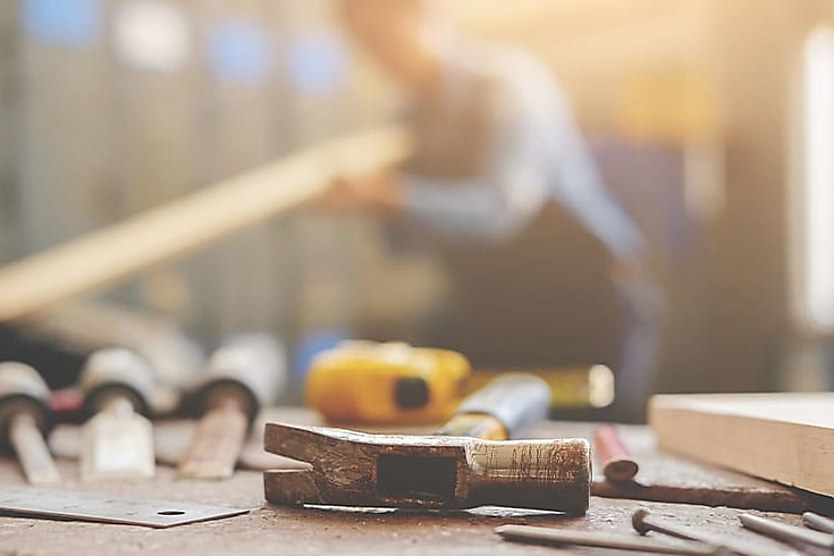Microaggressions building a barrier against women in construction
SHARE THIS ARTICLE

Workplace discrimination is affecting the longevity of women’s careers in the construction industry, according to a new report.
A key priority for the construction industry over the past few years has been to diversify its workforce to increase participation. Through this, an emphasis has been put on recruiting women to come and work in the construction industry, yet a new report has shown that once they take this leap, mistreatment, discrimination, and harassment are forcing them out the door.
According to The Not-So-Little Things Affecting Women in Construction report produced by the National Association of Women in Construction (NAWIC), 88 per cent of women in the construction sector have experienced microaggressions.
Without implementing proper solutions to combat these rampant microaggressions, the industry risks going backwards, TDC global managing director Sarah Liu explained.
“Attracting and retaining women in the construction industry has always been difficult, yet if women continue to be subjected to microaggressions at their workplace, we’ll see even greater levels of withdrawal from the industry,” Liu said.
“Homogenous teams lack the benefits of diverse perspectives, resulting in negative impacts on innovation and problem solving. The industry will lose out of 50 per cent of our talent pool if this culture persists.
“What’s more, high employee turnover associated with poor workplace culture leads to substantial financial losses and impairs the industry’s overall efficiency. Tackling microaggressions in the construction industry is not just the right course of action, but a commercial necessity.”
According to the data, eight per cent of women construction workers have already left the industry, citing microaggressions, lack of opportunities, and toxic workplace culture as major factors. Disparities in opportunities and resources were directly cited as a barrier to career advancement.
These microaggressions can pay a heavy toll on the mental health of women in the construction sector, stunting career progression. These often subtle yet persuasive behaviours can be verbal microaggressions, including dismissive comments and constant undermining, and the sector is paying for it.
The report featured a section of an interview with one respondent who said: “I was having nightmares about work, waking up in sweat and panic. My depression was exasperated, and I was always exhausted.”
A key issue cited in the report was the lack of accountability that perpetrators faced for exerting this behaviour. This is because the perpetrators, oftentimes, reside in supervisor or management positions, as the report stated that 41 per cent of these incidents were committed by this group.
Then, of course, when these women did send a complaint or reported the incident, 63 per cent said their complaints led to no change, with 9 per cent reporting that their situation worsened. This lack of accountability breeds a fearful attitude among women who may consider reporting the behaviour that has been inflicted upon them, fostering a culture of silence.
“This report highlights once again – that, more often than not, it is the workplace culture and systemic barrier that holds women back. The construction sector has been actively trying to overhaul its notorious reputation for its low female participation rate; however, it seems these efforts are a labour in vain,” Liu said.
“Women simply do not feel safe at work in the construction industry because the issues they face are subtle, and often perpetuated by individuals with influence over women’s careers.”
Liu strongly believes that the industry itself must shine a light on the actions and behaviours that are being inflicted upon women construction workers.
“Shining a light on the prevalence of microaggressions in the construction industry is a crucial step; however, awareness alone won’t lead to change. What’s important and critical now is leadership and the industry’s commitment to making real change,” Liu said.
“Women need access to safe processes and internal structures that allow them to call out poor behaviour, without fear of unfair repercussions.”
Lisa Martello, board director at NAWIC, also explained that this widespread problem isn’t a matter of women not being able to joke, as some may dismiss it as. Instead, it is a common microaggression problem that is not being held to account.
“Women can definitely take a joke, but we’re tired of being expected to put up with nasty comments and unfunny jokes that are simply not acceptable. The construction industry undoubtedly has a microaggression problem, and it’s time to address it,” Martello said.
“The survey data clearly indicates that we have a lot of work to do to make our industry a safe, enjoyable, and rewarding place to work for all individuals, regardless of gender. We are counting on everyone in our community to play their part in making this change happen.”
Both TDC Global and NAWIC are jointly calling for changes right across the sector, issuing several recommendations for leaders in the industry:
-
Mandatory manager training on recognising and addressing microaggressions: training to better understand how microaggressions manifest in the workplace and how to effectively intervene.
-
Anonymous reporting mechanisms: Construction firms urged to implement anonymous channels for reporting harassment, including microaggressions, allowing women to report issues safely.
-
Increased representation of women in leadership roles: Organisations should be supported in increasing the presence of women in senior positions, particularly in HR and C-suite roles, to ensure diverse voices are heard and women’s experiences are fully understood at the decision-making level. NAWIC is advocating for 30 per cent of women in leadership positions in the top 20 construction companies by 2030.
-
Peer support networks: Establishing peer support groups within the industry can provide women with a platform to share experiences, offer mutual support, and validate each other’s concerns.
Kace O'Neill
Kace O'Neill is a Graduate Journalist for HR Leader. Kace studied Media Communications and Maori studies at the University of Otago, he has a passion for sports and storytelling.

